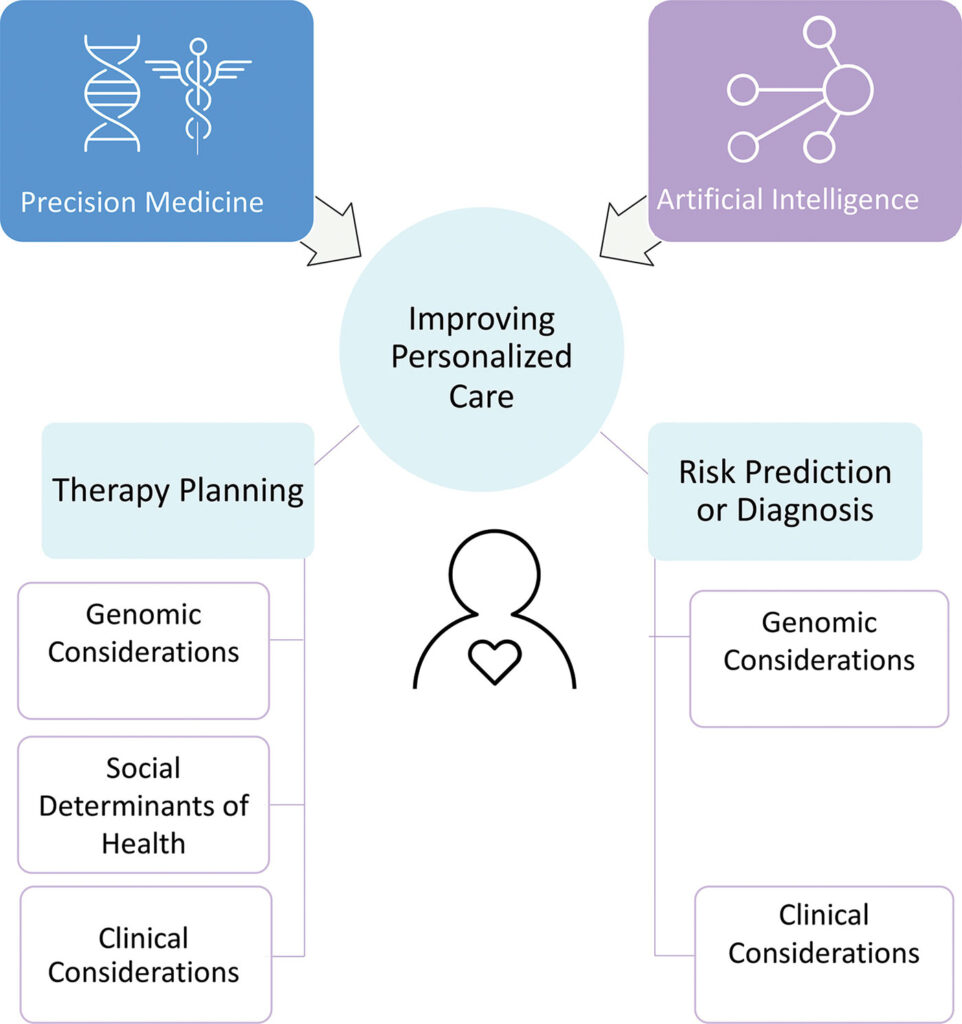
Title: The Evolution of Psychiatry: How AI and Genetic Insights Are Transforming Mental Health Treatment
In recent years, the domain of psychiatry has been experiencing a significant evolution fueled by technological advancements in artificial intelligence (AI), genetic studies, biomarkers, and wearable devices. As the healthcare landscape shifts towards more personalized and preventive care strategies, psychiatry—which has historically depended on subjective evaluations—approaches a transformational moment. Recently, psychiatrist and internal medicine doctor Dr. Muhamad Aly Rifai conveyed his thoughts on this evolution during an insightful discussion highlighted on The Podcast by KevinMD, focusing on his article, “The Evolution of Psychiatry: How AI and Genetics Are Transforming Mental Health Treatment.”
A Historical Gap in Objectivity
In contrast to other medical disciplines, psychiatry has conventionally relied on subjective diagnostic methods. While specialties like cardiology and neurology have benefited from robust imaging and biomarker-driven diagnostics (such as EKGs, MRIs, and blood tests), psychiatry has largely depended on patient interviews, self-reports, and clinical evaluations. This reliance has resulted in inconsistent diagnoses and varying treatment outcomes, marked by considerable interrater variability among psychiatrists.
Dr. Rifai points out that the complexity of the brain and the limitations of current tools have rendered objective psychiatric diagnosis particularly challenging. However, this situation is evolving at a rapid pace.
AI and Machine Learning: Pioneering Diagnostic Innovations
Artificial intelligence is increasingly being woven into psychiatric practice to lessen subjectivity and enhance diagnostic accuracy. One of the leading innovations in this area is the analysis of speech patterns. AI systems are being trained to recognize subtle nuances in speech rhythms, tones, and facial expressions that may indicate specific mental health disorders such as depression, anxiety, or schizophrenia.
Dr. Rifai cites ongoing initiatives where AI algorithms evaluate 15–30 second video clips of patients to assess movement disorders like tardive dyskinesia—a side effect of antipsychotic medications. These systems have already demonstrated comparable or even superior accuracy over subjective clinical evaluations, effectively serving as crucial diagnostic support tools.
Genetics and Pharmacogenomics: Tailoring Psychiatric Treatment
The mapping of the human genome has opened new avenues for mental health treatment. Areas like pharmacogenomics—where a patient’s genetic makeup influences medication selection—allow for the personalization of psychotropic drug prescriptions. This approach can significantly lessen the trial-and-error methodology often associated with psychiatric medication management.
While widespread clinical use is still being developed, genetic testing is already influencing treatment choices for select patients. Dr. Rifai notes that some patients are taking the initiative to undergo genetic testing and applying the findings to enact meaningful lifestyle changes. For example, discovering a sensitivity to carbohydrates through a genetic test enabled one of his patients to modify his diet and notably curb medication-related weight gain.
Biomarkers and Blood-Based Diagnostics
Another promising path involves the identification of biomarkers associated with psychiatric disorders. Historically, cortisol levels were among the first biomarkers employed in psychiatry, especially in research on depression. Currently, investigators are examining a wider array of biological indicators that could correlate with conditions such as PTSD, autism spectrum disorder, and various types of dementia. Many of these biomarkers are now undergoing clinical trials, with AI playing a crucial role in data analysis and pattern recognition.
While these innovations are not yet ready for broad diagnostic deployment, they have the potential to enhance clinical interviews and aid in crafting more effective treatment plans in the future.
Wearable Technology and Immediate Monitoring
Wearable devices like smartwatches are already demonstrating their utility in psychiatric care. Dr. Rifai provided an instance where a wearable sleep tracker helped him realize that a patient’s perceived insomnia was actually a misinterpretation, as the data indicated sufficient sleep duration. This revelation helped avert unnecessary medication use and enriched the therapeutic conversation between doctor and patient.
Wearables can also facilitate medication adherence, mood monitoring, and behavioral tracking, further empowering both healthcare providers and patients to make informed decisions anchored in objective, real-time data.
Preparing for the Horizon: Adapting to Change
Despite the optimism from experts and patients alike, not all mental health professionals are prepared or inclined to adopt these tools in their practices. Dr. Rifai acknowledges a degree of skepticism from some older psychiatrists, especially those trained before the digital age. Nevertheless, he encourages embracing these tools as complements to—not substitutes for—clinical expertise and therapeutic relationships.
“It’s on the way,” asserts Dr. Rifai, stressing that wearables, AI-enhanced diagnostics, and genetic testing are already present and ready to enter the mainstream within the coming years. Clinicians must be equipped to interpret or even steer the application of these technologies to ensure comprehensive, evidence-backed care.
A Comprehensive and Preventive Methodology
The convergence of AI, genetics, biomarkers, and technological devices signals the onset of a new chapter in psychiatry. By transitioning to a model that is not only reactive but also predictive and individualized, the field has the potential to greatly enhance patient outcomes.
Future psychiatric treatment may incorporate:
– Predictive models for identifying high-risk individuals